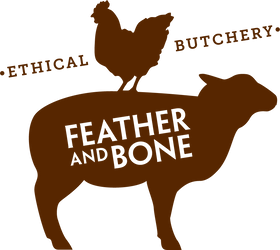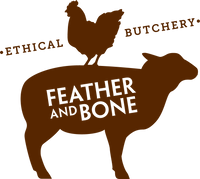Never bare the earth: news from our farms
On Sunday 29 July, Mr Bone set off on a week-long road trip visiting farms from the Riverina, up to Orange and back through Mudgee.
If you haven't been living under a rock, you'll know that NSW is currently experiencing the worst drought in living memory.
The news is full of heart-breaking stories of farmers and landscapes in deep distress and images of parched, dusty fields cracking painfully. Most of this coverage is from conventionally-managed farms with little resilience that find themselves terribly vulnerable in acute weather conditions.
But all farmers are doing it tough these days, even those who practice regenerative (non-conventional) management. These are farmers who've spent decades rejecting the conventional farming wisdom of land clearing, mono-cropping and over-stocking and who have successfully restored farms devastated by generations of mismanagement to vibrant eco-systems with healthy soil, plants and animals.
Guided by the principle of never baring the earth and thereby retaining topsoil and moisture, regeneratively-managed farms are generally much more resilient in the face of extreme weather and these farmers don't end up facing the dreadful crises portrayed by the media of farmers forced to shoot skeletal animals and pastures reduced to dust.
All the livestock farms Mr Bone visited on this trip are run by 'regenerative' farmers who have been working on harm minimisation strategies for a long time including de-stocking and longer rest periods for pastures. While their farms are undoubtedly dry and parched and everyone is buying in feed of some description, years of good management mean that their top soils are knitted through with the precious root systems of diverse ground plants which will kick back into life when the rain comes.
Meramie Farm, Grasslands Poultry
At Meramie Farm at 12 Mile near Wellington, where Kim and Brian Kiss grow the Grasslands Poultry Sommerlad chickens we receive each fortnight, the competition for feed with local wildlife has been one of the challenges of the drought. As well as the chickens, the Kisses grow a few hundred Shorthorn and Wagyu cattle. Early on, the Kisses 'locked up' several hundred acres of pasture to ensure a future feed source for their cattle. However, when they came to rotate their cattle onto these pastures, they found that hungry kangaroos had beaten them to it and the pasture was reduced to stubble.
Like many other farmers, the Kisses wisely took the very difficult decision to partially de-stock early on in the drought in order to avoid over-stressing their animals and pastures. They sold some of the herd when the animals were still in good condition which ensured a good price and better chances for the cattle remaining on the farm and, while the decision to de-stock is very distressing, it's better than dealing with starving animals.
It takes foresight, compassion and the long view of sustainability to de-stock before you reach the point where your animals are starving and you can't afford to feed them. In fact, sale yards won't accept an animal in poor condition and will report any cases of suspected neglect.
But the extended severity of the drought means that the Kisses are now faced with the distinct possibility that they'll be forced to sell their remaining cattle and only retain a small number of bulls to maintain the blood line.
When conditions improve, the Kisses will start all over again, rebuilding their herd. For now, they are foregoing income from de-stocking, they'll face significant cost to buy in new cows and, depending on when conditions improve enough to buy in new stock, it will be at least two to three years before they receive any income from their cattle. This is the reality of drought for the farmer.
But this is also where the wisdom of mixed farming comes into play because, for the Kisses, while they're forced to contract their cattle operation, their wonderful Sommerlad chicken breeding operation continues to provide income.
The Sommerlad Heritage chicken is an excellent example of a regenerative farming project. Bred from a handful of heritage strains chosen for their ability to thrive outside in Australian conditions, the Sommerlad bird is a resilient, hardy and vigorous forager and the small number of farmers authorised to grow Sommerlad birds have all noted the chickens' capacity to cope in extreme weather. They also provide a very different eating experience to the generic Cobb or Ross white broiler.
More news from the farms
We could keep going like this for ages because Mr Bone's returned with so many fascinating stories. We're busy writing up reports on all the farms, we've posted one blog so far and will be uploading more this week. If you're interested in finding out more, here's where to go.
Mr Bone's Road Trip: Days 1 & 2, South West Slopes
Simon Marnie radio interview on ABC 702, Saturday 4 August (1.30 minutes in)
Supporting our farmers by buying their produce
(The media love a dramatic tragedy and this 'drought crisis' is providing plenty of distressing and poignant content. Hopefully, this concentration on the crisis will eventually give way to a more considered discussion about how we should be farming, selling and buying our food in Australia.)




Good to hear. Thanks for publicising this.
Leave a comment